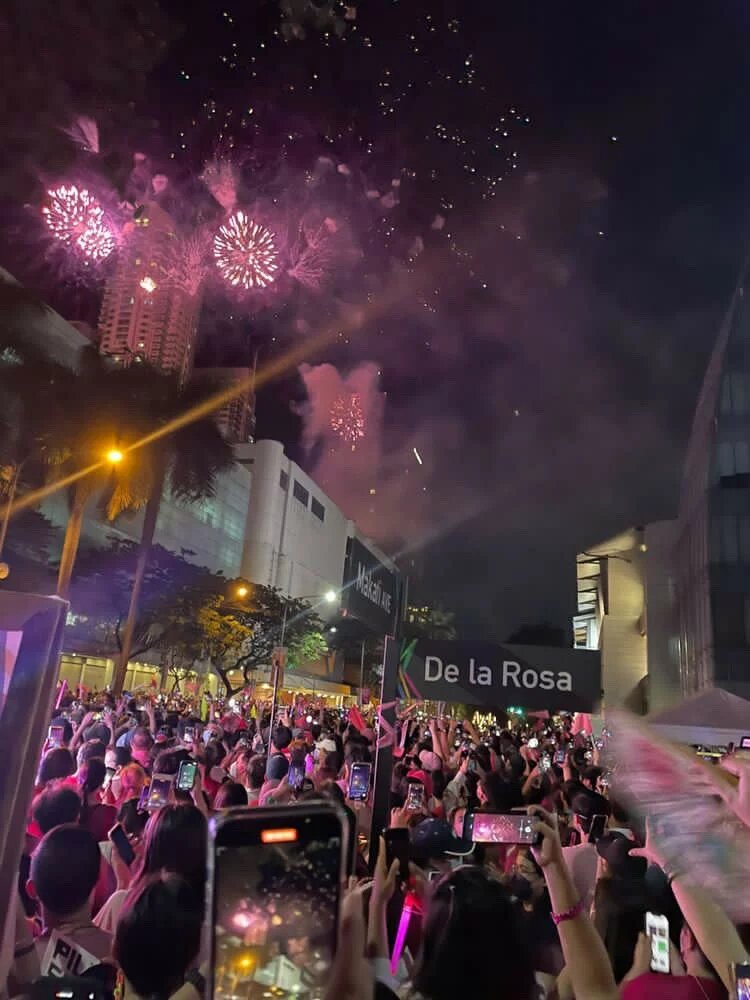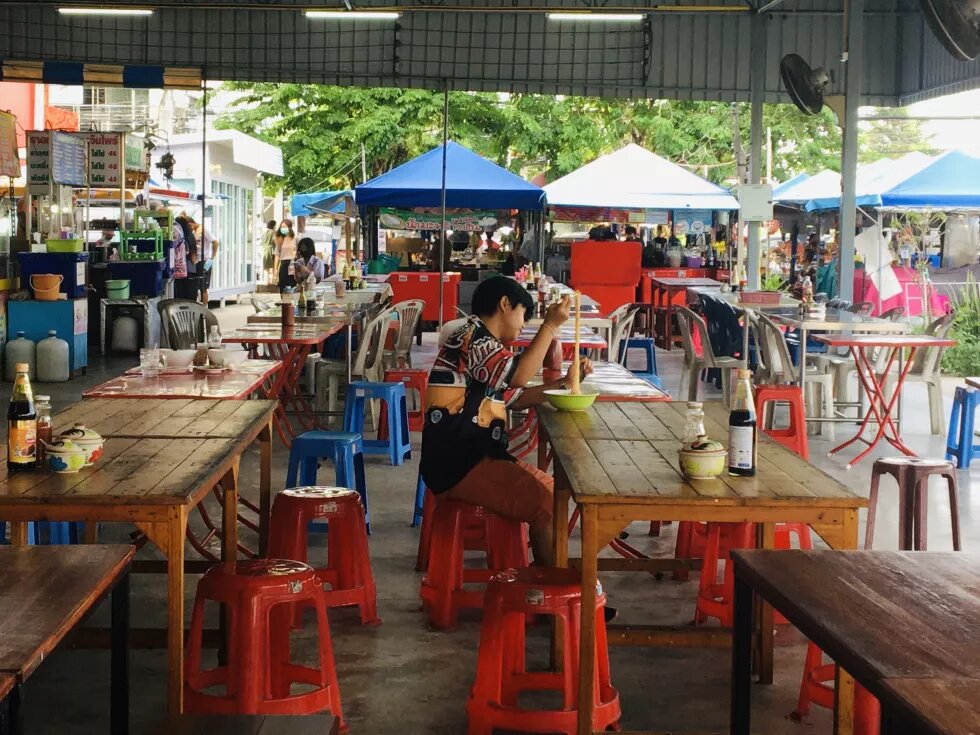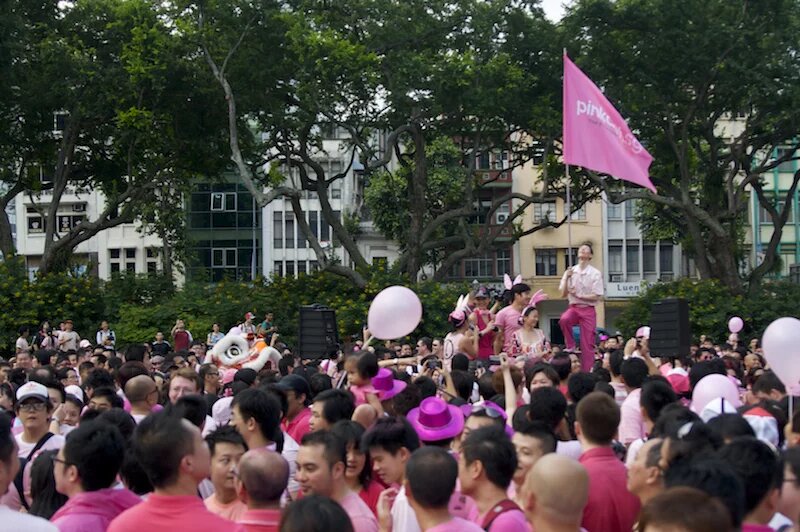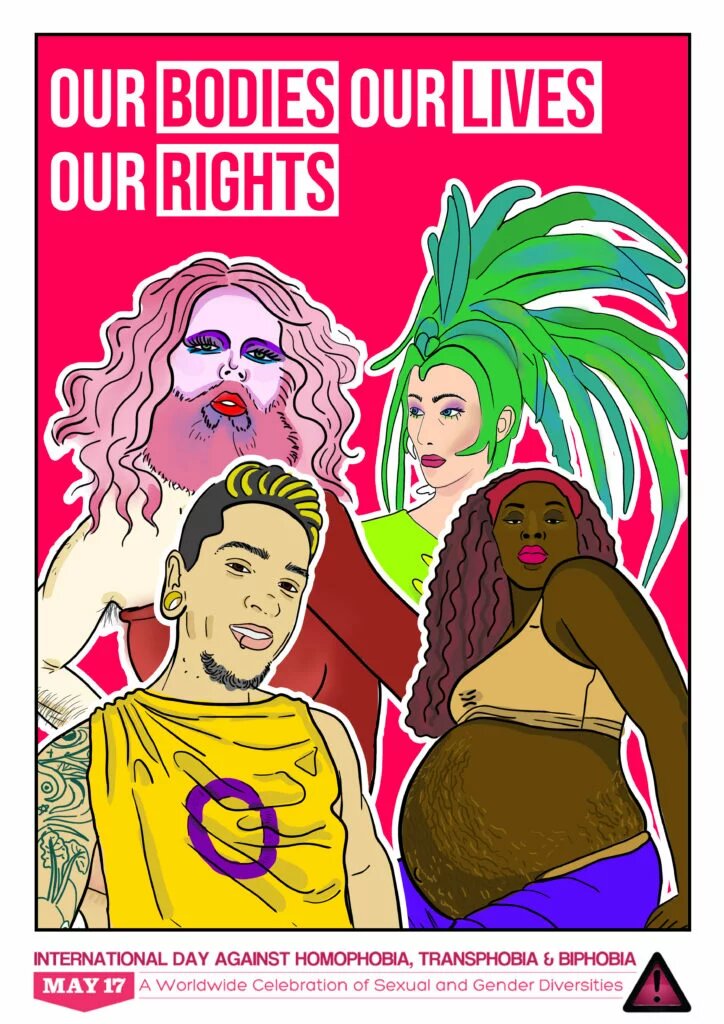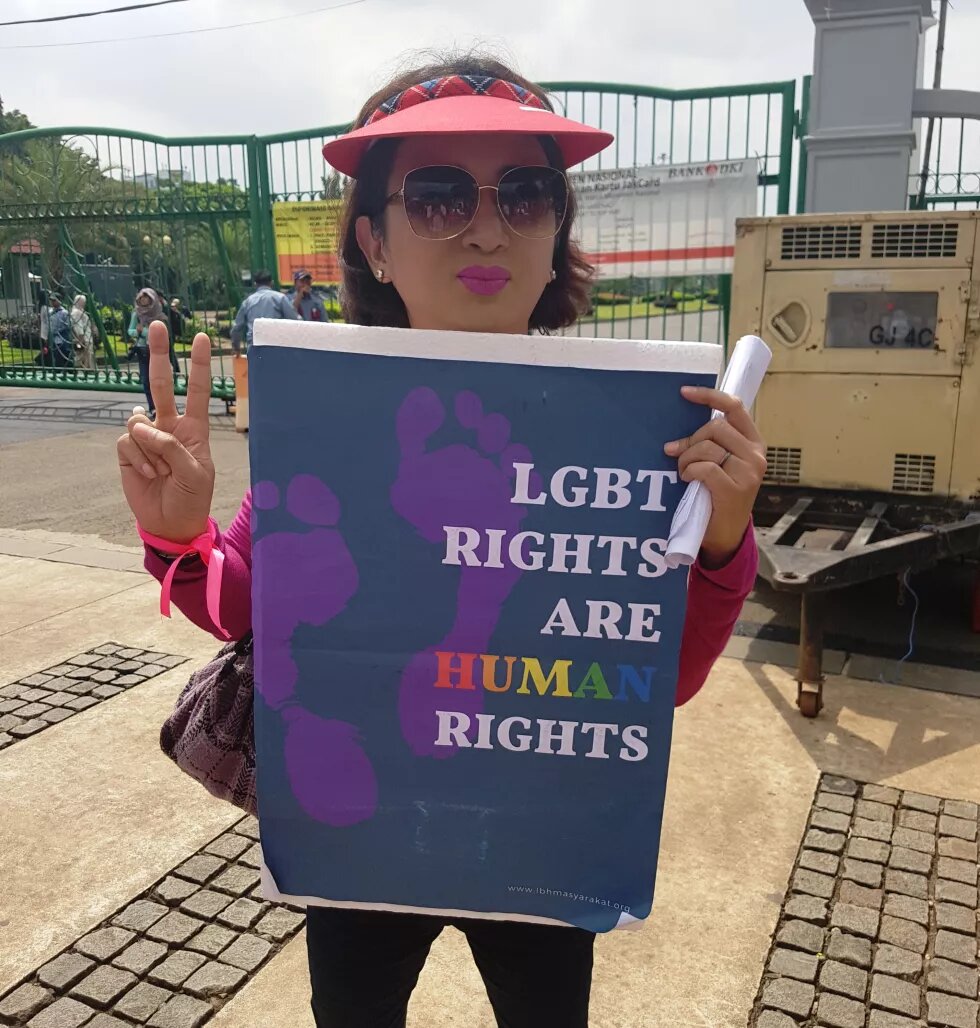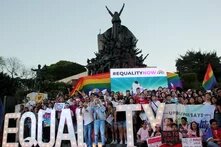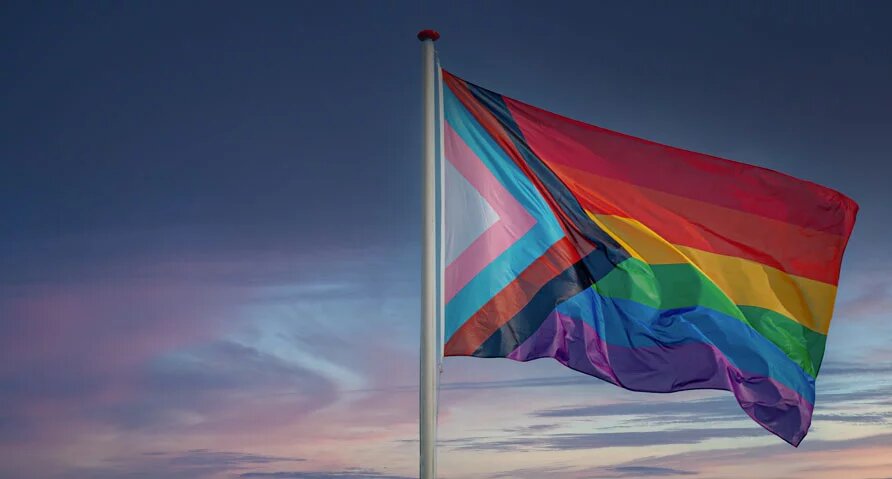
As the COVID-19 pandemic draws to a close, it will leave the vulnerable, especially countless LGBTQIA+ persons, desperate for deliverance and justice. In this regard, the International Day Against Homophobia, Biphobia, Intersexphobia and Transphobia (IDAHOBIT) has become more significant than ever. It calls us to seek those who are scared and traumatized, and lift them from the rubbles.
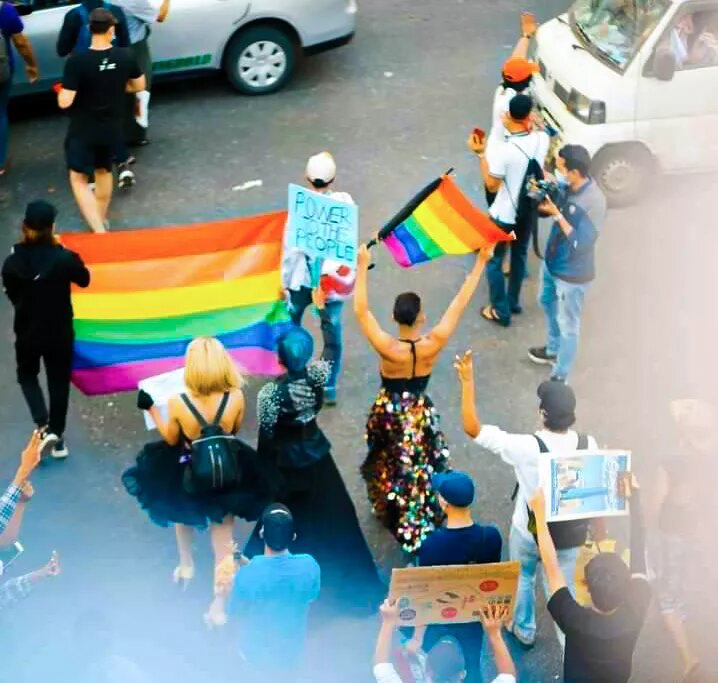
“I am a proud queer Southeast Asian academic-activist.”
This statement conveys a sense of power and identity, which I am able to confidently exercise and express to the world, or the universe rather. This ability to stand my ground and the tenacity with which I do it are, to say the least, products of a caring, accepting, and robust support system and a rather comfortable socio-economic positionality. it is a result of constant yet cumbersome negotiations with (and occasional victories against) demeaning norms and expectations. Obviously, I come from a place of privilege. I do and could not represent the general narrative of the Southeast Asian Lesbian, Gay, Bisexual, Transgender, Intersex, Queer/Questioning, Asexual (LGBTQIA+) community.
But, what does it really mean to be queer in this day and age?
Throughout the world, particularly in my region, a critical mass of LGBTQIA+ peoples are confronted with systemic and harmful barriers on a daily basis[1]. Their lived experiences are mired by cultures of silence and silencing, oppression, and in many contexts, purging. Structures and societies are, nowadays, dominated and driven by misogynistic and authoritarian values. These led to a depreciation of respect and concern for persons living at the margins, andthe COVID-19 pandemic just made it worse. Human rights and freedoms have to forcefully give way to draconian measures aiming to “protect” and “restore” public health, safety, and order. This also exposed and exacerbated multiple forms of inequalities and insecurities, which made healing and reintegration much more elusive. This global health emergency has turned into an irreversible pandemic of fear and oppression for the greater queer population.
We Were Once Celebrated and Respected
In this era of disinformation and revisionism, we are compelled to remember and recognize our past truths and realities. We owe this to ourselves, to our ancestors, and most urgently to those whose perception and conscience have been polluted.
Historically, Southeast Asia was home to empowered and empowering queer cultures and communities[2]. In Indonesia and Malaysia, multiple gender identities and sexual experiences were then recognized. Before the machismo phenomenon swept the Philippines, male-bodied persons who cross-dressed and engaged in homosexual activities were tolerated and celebrated. Some even enjoyed positions of authority on both social and religious fronts.[3] The Kathoeys of Thailand played a crucial role in enabling spiritual and physical healing of their respective communities.
These traditions were eventually pitted against forces that have impacted the ways people interacted (or disconnected) and lived (or fought for survival). Colonization not only exploited our local wisdoms and resources but also twisted our sense of self, as well as our ability (and agility) to question power structures and norms. Non-indigenous belief systems conditioned us to faithfully abide by “moral” and polarizing standards. Neo-liberal and capitalist regimes have influenced and limited our choices and opportunities in pursuit of happiness and progress. These, apart from many other micro and macro aggressions throughout time, have indeed contributed to the erosion of the appreciation for queer identities, practices, and values.
What We Have Become
Over time, I witnessed how my beloved Southeast Asia devolved into a toxic, and fragile place. Many have lost faith in human rights and democratic institutions. Heightened securitization of societies in response to COVID-19, fueled by populist and authoritarian regimes, and the massive spread of mis/mal/disinformation, has become a staple throughout the region. Once glorified, LGBTQIA+ persons have found themselves in a perfect storm, in which they are subjected to intense fear, pain, hate, and disenfranchisement.
Amid spikes in infections and deaths, those who survived (and are surviving) the pandemic were/are forced into poverty and isolation[4]. Restricted mobility prevented queer people from accessing justice, work opportunities, and health services. Enforced lockdowns have turned homes into breeding grounds for Sexual Orientation, Gender Identity and Expression, and Sex Characteristics (SOGIE-SC)-based violence and hatred, particularly for transgender peoples. To make matters worse, the absence of reliable disaggregated data on LGBTQIA+ has blocked any forms of meaningful solutions for gravely affected individuals and communities[5].
On the socio-political front, democratic backsliding diminished existing efforts and pathways to social justice and peace. This took a heavy toll on many queer human rights defenders. LGBTQIA+ activists in Myanmar[6] and Thailand[7] found themselves at the crossfires, forcing many into incarceration, exile, and death. For elections happening this year, queer people have massively showed their support in public for their preferred candidates, as evident in the Philippines. In Cambodia, LGBTQIA+ people have yet to be seen actively running for office[8]. Furthermore, gains made by local and regional SOGIE-SC groups were disrupted by shrinking civic spaces, funding restrictions, increased carework responsibilities, and mental health challenges.[9] Many were either forced to downsize or shutdown, leaving a huge void in an already volatile advocacy space.
Technology has been playing a crucial role in shaping (and undermining) our agency, capacities, and worldviews. At the height of the pandemic, various platforms not only enabled the ability to express and connect but also served to save lives through online medical services and counseling. In lieu of traditional means and spaces, queer activists turned to cyberspace in order to conduct discussions and campaigns.[10] Moreover, netizens were exposed to media contents on queer narratives, such as Boy Love series, produced mainly in Thailand and the Philippines.[11] There is, on the other hand, a very haunting side to this. Disinformation, particularly on social media, has blurred the line between fact and fiction. This enabled public support for historical revisionism and, sadly, popular denial of evidence and exact lived experiences[12]. It also resulted in anti-human rights and LGBTQIA+ sentiments spreading like wildfire both online and offline[13]. Furthermore, digital insecurity and surveillance have put innocent lives in danger, especially in fragile and restrictive societies[14].
We Are in for the Long Haul
As the COVID-19 pandemic draws to a close, it will leave the vulnerable, especially countless LGBTQIA+ persons, desperate for deliverance and justice. In this regard, the International Day Against Homophobia, Biphobia, Intersexphobia and Transphobia (IDAHOBIT) has become more significant than ever. It calls us to seek those who are scared and traumatized, and lift them from the rubbles.
Hope is currently at the cliff’s edge. Together, we should be more vigilant to, now more than ever, translate it into commitment and action. This year’s theme, “Our Bodies, Our Lives, Our Rights” appeals to the need to reclaim our agency and aspirations. It should enable everyone to raise the torch for the displaced and deprived. Furthermore, concerted efforts should lead to to the full recognition and ownership of our rights and freedoms. Hence, critical steps have to be made in order to activate our One Queer Fight against this pandemic of fear and oppression.
- Co-Creating Brave Spaces: Amid unsafe and toxic environments, LGBTQIA+ peoples should be able to freely speak their truth to power. This requires listening without judgement and action with compassion. Hence, allies must serve as shepherds enabling them to grow and thrive.
- Attaining Rights-based Recovery: LGBTQIA+ peoples deserve to be included in designing and implementing structures and policies that will affect their bodies and agency. It must start with comprehensive documentation and appreciation of their lived experiences. Resources must also be allocated for targeted interventions or solutions to their concerns. Social and economic barriers, too, have to be deliberately dismantled.
- Shaping a Better Normal: We must acknowledge and understand that SOGIE-based phobia has no place in a post-pandemic world. Transforming mindsets, language, and positionalities must be done in a systemic and empowering manner. Furthermore, critical consciousness should be nurtured, not only to multiply allies but to also build a culture of queer solidarity.
At the end of the day, hope for an inclusive, embracing future cannot be snatched away from us. It may take openness and radical love to make lives more bearable in this period of uncertainty. It may be uncomfortable at first. But, trust me. It will be worth it once the rainbow emerges after this tumultuous storm.
__
Joel Mark Baysa Barredo (he/him/his; they/them/theirs) considers himself a Southeast Asian queer-feminist academic activist. He is currently the Executive Director of the Strengthening Human Rights and Peace Research/Education in ASEAN/Southeast Asia Programme (SHAPE-SEA). Joel is an Obama Leader for Asia-Pacific 2022. He is also member Regional Advisory Committee for ASEAN SOGIE Caucus' project on "Enriching LGBTQIA+ Expertise in ASEAN and Human Rights Engagement".
The views expressed in this article are not necessarily those of Heinrich Böll Stiftung.
References
Dieser Artikel erschien zuerst hier: th.boell.org
